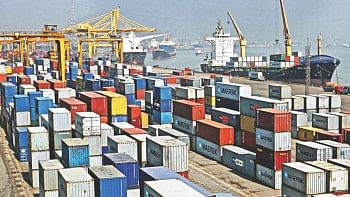Obama won't rush into costly Syria war
President Barack Obama yesterday called the apparent gassing of hundreds of Syrian civilians a "big event of grave concern" but stressed that he would not rush to embroil Americans in a costly new war.
As opponents of Syrian President Bashar al-Assad braved the frontlines around Damascus to try and deliver tissue samples to UN inspectors from victims of Wednesday's poisoning, Obama brushed over an interviewer's reminder that he once called the use of chemical weapons a "red line" for US action on Syria.
He played down the chances of Assad cooperating with a UN team that might, if given access soon, provide conclusive evidence of what happened. In any case, he would not react in haste to calls for US intervention that would "mire" Americans in an undertaking that was counter to their long-term interests.
Meanwhile, Britain yesterday said it believed forces loyal to Syrian President Bashar al-Assad were responsible for the chemical weapons attacks, saying it thought the Syrian government had "something to hide".
Stepping up calls for UN inspectors to be allowed access to the site of the reported attack, Hague said Britain would go back to the UN Security Council to seek a stronger mandate if inspectors were not granted access "within some days", reported AFP.
Earlier, a US official familiar with initial intelligence assessments said that the gassing appeared to be the work of the Assad government.
Noting budget constraints, problems of international law and a continuing US casualty toll in Afghanistan, Obama told CNN:
"Sometimes what we've seen is that folks will call for immediate action, jumping into stuff that does not turn out well, gets us mired in very difficult situations, can result in us being drawn into very expensive, difficult, costly interventions that actually breed more resentment in the region.
"The United States continues to be the one country that people expect can do more than just simply protect their borders. But that does not mean that we have to get involved with everything immediately.
"We have to think through strategically what's going to be in our long-term national interests."
Asked about his comment - a year to the day before the poison fumes hit sleeping residents of rebel-held Damascus suburbs - that chemical weapons would be a red line for the United States, he replied: "If the US goes in and attacks another country without a UN mandate and without clear evidence that can be presented, then there are questions in terms of whether international law supports it."
Russia and China have vetoed United Nations Security Council moves against Assad in the past and oppose military action.
International powers, including Moscow, have urged Assad to cooperate with a UN inspection team which arrived on Sunday to pursue earlier allegations of chemical weapons attacks and to give them access to affected areas before evidence deteriorates.
Syrian officials say allegations against their forces are "illogical and fabricated". They point to the timing of the attack, just days after UN inspectors arrived, and say it conflicts with previous assurances that, if they possessed chemical weapons, they would never use them against Syrians.
Opposition activists said they had been in contact with the specialist UN team in Damascus and had sent tissue samples with couriers seeking to slip across from the Ghouta region into the government-held centre to deliver them to the inspectors.
The rebels' efforts could prove futile; only material that has a clear provenance and a "chain of custody" would generally be treated as evidence by UN inspectors.
Former weapons investigators say every hour matters in determining if chemicals were used and who was behind them.
"The longer it takes, the easier it is for anybody who has used it to try to cover up," said Demetrius Perricos, who headed the UN team of weapons inspectors in Iraq in the 2000s.
Images, including some by freelance photographers supplied to Reuters, showed scores of bodies laid out on floors with no visible signs of injury. Some had foam at the nose and mouth.
France said on Thursday that world powers must respond with force if allegations of chemical attack on civilians prove true. Fabius stressed, however, there was no question of sending in troops.
European officials speaking on condition of anonymity said that hypothetically, options for response range from air strikes, creating a no-fly zone, or providing heavy weapons to some rebels were all still on the table. But there was little prospect of concrete measures without US backing.
"The American reaction ... was cautious," said one official. "And without US firepower, there's little we can do."
Obama has directed US intelligence agencies to urgently help establish what caused the deaths, a State Department spokeswoman said, but she said it may be difficult, given that the United States does not have diplomatic relations with Syria.
No deadline was given to agencies investigating the attack.
The State Department also said senior US and Russian diplomats would meet in The Hague next Wednesday to discuss ending Syria's two-year civil war, which has already killed more than 100,0000 people. It would be the first such meeting since allegations of the chemical attack.
Millions have been forced from their homes. On Friday, the United Nations said 1 million children alone have fled the country and 2 million have been displaced inside Syria.

 For all latest news, follow The Daily Star's Google News channel.
For all latest news, follow The Daily Star's Google News channel. 



Comments